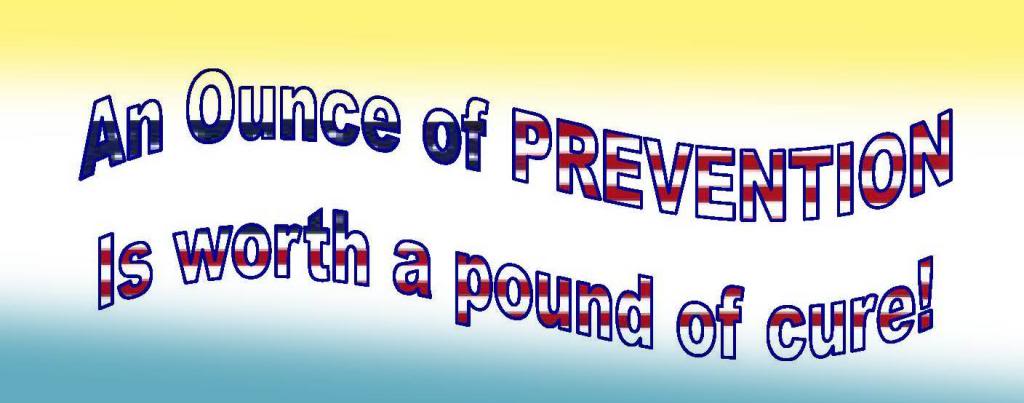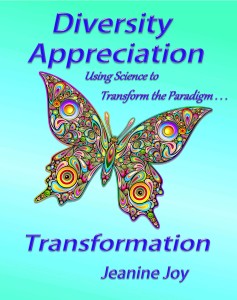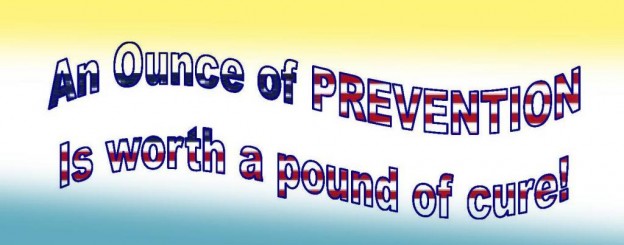
Politicians are you paying attention? Do you really have the well-being of the people in mind? Then pay attention–we know what we need to know to solve most of the problems on the agenda. Let’s stop treating symptoms and solve them at the root cause level.
This is an excerpt from the North Carolina 2012 Research Divisions (for the NC House and NC Senate) that I felt could be beneficially impacted by knowledge and skills training in positivity, optimism, stress reduction, and happiness based on the current state of the knowledge base contributed to by many branches of science including positive psychology, biochemistry, neuroscience, epigenetics, psychoimmunology, and many more.
Federal legislators and the Surgeon General are also ignoring these potential benefits. Why? Is it a case of following the money to see the real motivation?
Do we need a grass roots effort to demand that state of the art knowledge be put toward solving problems?
These benefits P R E V E N T illnesses and societal problems – not just address symptoms. There is no reason to wait!
- The category is listed first.
- The individuals assigned are listed second.
- The third aspect are statements (not exhaustive) of the benefits science has demonstrated would be attributed to that area with the implementation of training in increased positivity, optimism and happiness.
The comments are made by Jeanine Broderick, President of Happiness 1st. This is based on many years of research across many scientific disciplines fueled by passion for learning everything possible about the benefits of positivity to individuals, their families, their employers and their communities.
I was writing to all the NC elected representatives and came across this listing. I felt inspired by the numbers of areas that have potential to be beneficially impacted.
There is solid science behind the statements made.
2012
A
Abortion Shawn Parker, Amy Jo Johnson,
Janice Paul, Kelly Quick
Reduces Teen Pregnancy and repeat teen pregnancy
Adult Care Homes Theresa Matula, Sara Kamprath,
Susan Barham
End of life debilitating diseases onset is later and closer to death
Adult Day Care Theresa Matula, Sara Kamprath,
Susan Barham
End of life debilitating diseases onset is later and closer to death
Aging Theresa Matula, Sara Kamprath,
Susan Barham
End of life debilitating diseases onset is later and closer to death
Studies show that attitude about aging has tremendous impact; positive outcomes can be greatly increased.
AIDS Shawn Parker, Amy Jo Johnson
Improves decision-making
Alcohol Abuse Shawn Parker, Janice Paul, Susan Barham
Reduces substance abuse
Often feeling unhappy is a strong factor in onset
Assisted Living Theresa Matula, Sara Kamprath,
Susan Barham
End of life debilitating diseases onset is later and closer to death
B
C
Child Abuse & Neglect Drupti Chauhan, Janice Paul,
Susan Barham, Kelly Quick
Reduces substance abuse
Improves relationships of all types
Improves ability to think
Stress reduction skills can help avoid reaching that crisis point
Children, Family & Marriage Wendy Ray, Drupti Chauhan, Janice Paul,
Kelly Quick
Improves relationships of all types
More harmonious relationships
Increases stability
Reduces marriage for wrong reasons
Make earlier course corrections – with knowledge and skills
Colleges Drupti Chauhan, Kara McCraw,
Sara Kamprath, Patsy Pierce, Dee Atkinson
Depression is rampant among college students
- reduces substance abuse
- reduces ‘comfort’ sexual encounters
- increases true self-esteem
- Reduces teen pregnancy
Suicide is a major problem in this age group – would reduce it
Increases emotional intelligence
Increases IQ
Community Colleges Kara McCraw, Drupti Chauhan,
Sara Kamprath, Patsy Pierce, Dee Atkinson
Depression is rampant among college students
- reduces substance abuse
- reduces ‘comfort’ sexual encounters
- increases true self-esteem
- Reduces teen pregnancy
Suicide is a major problem in this age group – would reduce it
Increases emotional intelligence
Increases IQ
Corrections Brenda Carter, Susan Sitze, Hal Pell,
Kelly Quick
Strongly believe it would reduce recidivism – would like to study
D
Disabled Persons Shawn Parker, Susan Barham,
Amy Jo Johnson, Patsy Pierce
There are many incidents of positivity improving ability beyond where physicians believed they could go
Helps with depression
Discrimination Hal Pell, Brad Krehely, Kara McCraw,
Amy Jo Johnson, Kelly Quick
There is discrimination in the world but there is also perceived discrimination when it does not exist and both are damaging to living harmoniously as a society. Helps with both types as increased positivity has been shown to reduce racism.
Diseases Shawn Parker, Amy Jo Johnson, Susan Barham
50% risk reduction in cardiovascular disease (Harvard Meta-Analysis)
One skill has been shown to reduce death, disability and stroke in those who already have heart disease
Provides preventative effect on cancers studied (including breast cancer)
Reduces risk of Type II diabetes
Reduces depression and chronic depression
Reduces impact of negative life events (which typically increase risk of disease & death)
Shown to have a positive impact on Alzheimer’s
Positive impact on stroke
Divorce
Wendy Ray, Janice Paul
Improves relationships of all types
More harmonious relationships
Increases stability
Reduces marriage for wrong reasons
Make earlier course corrections – with knowledge and skills
Domestic Violence Hal Pell, Wendy Ray, Susan Sitze, Janice Paul, Susan Barham
Improves relationships of all types
More harmonious relationships
Increases stability
Reduces marriage for wrong reasons
Make earlier course corrections – with knowledge and skills
Drugs – Crime Hal Pell, Wendy Ray, Susan Sitze,
Kelly Quick
Reduces substance abuse
Often feeling unhappy is a strong factor in onset
Drugs – Pharmaceutical Shawn Parker, Barbara Riley,
Susan Barham, Amy Jo Johnson
There are a number of drugs where the placebo effect is almost as beneficial as the strong drug (that comes with side effects). Positivity can be nurtured to gain benefits from the same mechanisms that provide placebo effect deliberately
Drunk Driving, DUI & DWI Susan Sitze, Hal Pell, Brenda Carter
Reduces substance abuse
Improves decision making abilities
Provides skills and knowledge to deal with life stressors without need to medicate with alcohol
E
Econ. Dev. Incentives, JSC Cindy Avrette, Trina Griffin,
Heather Fennell, Greg Roney, Judy Collier
It would be nice to have some incentives to adopt these practices as employee benefits. The science is sound and the business benefits are robust but getting businesses to listen and understand the benefits is an uphill battle right now. Happiness has a reputation as ‘fluffy’ and something you chase, not attain. Creating case analysis would increase natural adoption of beneficial programs because the benefits include: decreased absenteeism, increased productivity, decreased turnover, increased mental ability, increased creativity, decreased health care costs, less bickering in the office and more.
Economic Development Cindy Avrette, Trina Griffin,
Heather Fennell, Greg Roney, Judy Collier
Adoption of programs could give businesses a competitive edge coming out of the recovery.
Education Drupti Chauhan, Kara McCraw, Sara Kamprath, Patsy Pierce, Dee Atkinson
Emotional self-mastery and understanding of emotions will help children thrive at all ages.
I believe that the ones I read about (at the bottom) who can’t seem to improve no matter how many resources are thrown at them are often suffering from “Learned Helplessness” which is a state of mind where they just do not believe their actions matter. It is possible to unlearn “Learned Helplessness” and a program to do this (both for children and adults) would, I believe, result in thriving like you’ve never imagined in areas previously thought hopeless.
Elderly Theresa Matula, Sara Kamprath, Susan Barham
End of life debilitating diseases onset is later and closer to death
Studies show that attitude about aging has tremendous impact; positive outcomes can be greatly increased.
Emergency Management (Resilience) Barbara Riley, Janice Paul, Kelly Quick
Resilience increases so the ability to rebound after an emergency and function well would be improved.
Employee Benefits Theresa Matula, Karen Cochrane-Brown,
Brad Krehely
Until everyone is learning this in school providing it as an employee benefit is a good way to help those who have completed their schooling. Providing tax advantages for employers to offer the courses would be beneficial. For example, considering it a health care expense that employers can write off. I do not believe we can make it eligible for flex benefits or HSA accounts at the state level but that would also be fantastic.
Environmental Health Jennifer Mundt, Jeffrey Hudson,
Jennifer McGinnis, Mariah Matheson
Why does one person get sick and another not when exposed to the same environmental toxins? The level of positivity plays a part with positivity providing some protections. The science showing that the immune system functions better when someone is positively focused, optimistic and happy is strong and clear.
Eugenics Denise Huntley Adams, Susan Barham, Janice Paul
There is clear evidence that a positive environment has a beneficial impact on future generations (out up to 8 generations in the research I have seen on rats) but even more importantly, there is science showing negative impact on the next generation from depressed Moms-to-be including adverse impact on behavior, sleep patters, and increased incidence of asthma and depression in the offspring.
Epigenetics is a rapidly advancing science and the newest findings demonstrate the benefits of being positively focused.
F
Families Drupti Chauhan, Wendy Ray, Janice Paul,
Patsy Pierce, Kelly Quick
Improves relationships of all types
More harmonious relationships
Increases stability
Reduces marriage for wrong reasons
Make earlier course corrections – with knowledge and skills
Federal Health Care Reform Shawn Parker, Amy Jo Johnson
I was gravely disappointed that the National Prevention Council Action Plan: Implementing the National Prevention Strategy did not include taking advantage of the knowledge that exists regarding the impact of positive emotions on prevention across the board. I would be happy to participate in developing programs and recommendations to bring the advantages and known benefits of increased optimism to North Carolina. On the bright side, this affords the state of North Carolina to be a leader in this change.
Food Stamps Shawn Parker, Susan Barham, Janice Paul
Poverty is impacted by many factors that improve with the knowledge and skills including self-esteem, overcoming Learned Helplessness, re-framing failures as learning experiences and more.
The program makes individuals feel more empowered and thus more likely to take positive actions under their own volition.
Foreclosure Karen Cochrane-Brown, Bill Patterson, Greg Roney, Janice Paul, Drupti Chauhan
Poverty is impacted by many factors that improve with the knowledge and skills including self-esteem, overcoming Learned Helplessness, re-framing failures as learning experiences and more.
The program makes individuals feel more empowered and thus more likely to take positive actions under their own volition.
Financial woes are currently made worse by some of the practices of the lenders. They will often have the delinquent customer rehash the reasons for their late payments over and over again. This focus further depletes their resilience and makes them feel even more of a failure which then becomes a self-fulfilling prophesy. As Henry Ford said “If you believe you can, you can. If you believe you can’t, you can’t. Either way you are right. ” Reviewing practices that tend to further deplete the resilience and emotional resources of someone who is already struggling and making modifications that will help them recover instead of furthering the misery would be beneficial to both sides.
Freedom of Press Kara McCraw, Brad Krehely
I believe in a free press but right now the press is actually very damaging to our society. They focus upon negative events and circumstances. They do not inform (if they wanted to inform them would tell us when things were fixed, resolved, etc. ) They sensationalize.
I attended a class by Dr. Robert Holden in NYC last November and my Mom was worried sick because I stayed in Times Square and the news reported that Times Square had been taken over by Occupy Wall Street. My parents who diligently watch TV daily for hours to ‘be informed” believed, from the reports, that I was in a virtual war zone. I not only walked several blocks from my hotel to the class every day but also walked at night and never felt frightened nor did I see evidence of Occupy. The news had clearly reported an erroneous picture of the true situation, one much worse than it actually was.
They are doing the same thing with Greece and Spain. I have been asking those I meet who have been there recently about conditions because, once again, my Mom is quite frightened by the reports knowing that I am going there soon. Everyone I have spoken with has enjoyed good experiences and not been frightened.
I do not watch television. I turned it off in 1995 because the characters were people I would ask to leave if they were physically in my home. Sometimes I go to a friends home and the news is on. It can make me physically ill to listen to it in a few minutes.
There is so much good and wonderful in our world. If the news was reported proportionately good and bad the bad news would last less than 1 minute in each 24 hours. With the evidence we already have about the negative impact of this and the number of televisions that are on in most homes the negative impact is astronomical in terms of health care costs and illness. I would like to see public service announcements educating people about the benefits of positivity, optimism, and happiness. I would like to see a requirement that for every so much airtime of negative news, during the same show, a public service announcement made.
We have a Surgeon General Warning on cigarettes yet smoking only takes an average of 7 years off a life. Negativity takes 10 years.
Negativity also has a negative impact on our offspring.
Negativity has a detrimental impact on our success, our health, and our relationships.
G
Genetics Amy Jo Johnson, Susan Barham
See comments above re: eugenetics
Grandparents Wendy Ray, Janice Paul
Studies show that positively focused individuals maintain better relationships with their families because family members are more motivated to spend time with them.
H
H. Commerce Sub. on Science and Technology
Bill Patterson, Greg Roney
More studies need to be commissioned. It is time to take the vast knowledge and create programs to benefit society and study the results so that tweaks can be made.
H. Education Sara Kamprath, Drupti Chauhan,
Kara McCraw, Patsy Pierce, Dee Atkinson
Right now the only positive psychology program in the country (for a doctorate) is at Penn State. There are scientists who actually believe that understanding emotional self-mastery will eliminate many of the mental health diseases that currently exist. They are seeing the correlation between not properly addressing negative emotions when they occur and developing those illnesses. Understanding the benefits of positivity even further and across disciplines (many fields of science are contributing to the research including neuroscience, biochemistry, psychology, quantum physics, and more.
H. Health and Human Services Shawn Parker, Amy Jo Johnson,
Barbara Riley, Janice Paul, Susan Barham
Many of the chronic issues can be resolved using the knowledge and skills already developed.
H. Military and Homeland Security Hal Pell, Tim Hovis
What is the difference between post adversarial growth and PTSD? Often it is mental state and having either knowledge and skills to deal with the trauma or following instinctive ideas that lead one to post traumatic growth instead of PTSD.
Health Shawn Parker, Amy Jo Johnson, Susan Barham
Some Scientifically Shown Benefits of Increased Happiness
Positive emotions, optimism, and happiness have been scientifically shown to:
- Reduce the risk of developing cardiovascular disease by 50%[i]
- Provide a protective defense against breast cancer[ii]
- Increase resilience “We contend that the cognitive broadening that accompanies states of positive emotion expands and improves the ways people cope during crises”. [iii]
- Increase problem solving abilities and negotiating skills[iv]
- Have the potential to create chains of events that carry positive meaning for others, positive emotions can trigger upward spirals that transform communities into more cohesive, moral and harmonious social organizations. [v]
- Reduce stress which is being researched as contributing to Alzheimer’s disease[vi] and [vii]
- Be the best coping strategies for life’s ‘downs’. [viii]
- Significantly reduces risk of stroke (study only considered optimism)[ix]
- Improved relationships of all types[x]
- Increase success[xi]
- Research suggests that negativity in social relationships is an important predictor
- of (adverse) mental health in its own right[xii]
This is just a sample of the scientifically proven benefits. Research has found enough benefits to fill several books. I apologize for the copious citations but I wanted you to see that the statements are based upon solid research.
• Improved immune system function
• Reduced risk of heart disease and stroke
• Reduced risk of Type II diabetes
• Reduced risk of Alzheimer’s disease
• Reduced risk of depression
• Reduced incident of illness
• Shorter duration when illness occurs
• Reduced inflammatory response to stress
• Increased longevity
• Lower blood pressure
• Less pain
• Improved sleep
• Greater resiliency and adaptability
• More likely to make good choices
• Increased creativity
• Increased success
• Increased productivity
• Increased optimism
• Improved relationships of all types
• Improved social support networks
• Feel love and appreciation more
• More likely to marry
• More likely to be happily married
• Become more likable
• Greater clarity of thinking; the mind sees more possibilities
• Increased ability to see the ‘big picture’
Please see our website, www. Happiness1st. com, for greater details.
Scientific Citations
[1]Boehm, J. K. , & Kubzansky, L. D. The heart’s content: The association between positive psychological well-being and cardiovascular health. Psychological Bulletin, April 2012
AmericanAcademyof Neurology (2001, July 13). Keeping up your overall health may keep dementia away, study suggests. Science Daily.
- Cardiovascular disease is a risk factor for Alzheimer’s so this risk is also reduced. AmericanAcademyof Neurology (2001, July 13). Keeping up your overall health may keep dementia away, study suggests. Science Daily.
[1]Ronit Peled, Devora Carmil, Orly Siboni-Samocha and Ilana Shoham-Vardi. Breast cancer, psychological distress and life events among young women. BMC Cancer
[1]What good are positive emotions in crisis? A prospective study of resilience and emotions following the terrorist attacks on the United States on September 11th, 2001. Fredrickson, Barbara L. ; Tugade, Michele M. ; Waugh, Christian E. ; Larkin, Gregory R. Journal of Personality and Social Psychology, Vol 84(2), Feb 2003, 365-376. doi: 10. 1037/0022-3514. 84. 2. 365
[1]Content analyses revealed that physicians who felt good were faster to integrate case information and less likely to become anchored on initial thoughts or come to premature closure in their diagnosis. In yet another experiment, Isen and colleagues showed that negotiators induced to feel good were more likely to discover integrative solutions in a complex bargaining task. Overall, 20 years of experiments by
Isen and her colleagues show that when people feel good, their thinking becomes more creative, integrative, flexible and open to information. The Value of Positive Emotions. Barbara L. Fredrickson, Ph. D.
[1]The Value of Positive Emotions. Barbara L. Fredrickson, Ph. D.
[1]Ioannis Sotiropoulos, Caterina Catania, Lucilia G. Pinto, Rui Silva, G. Elizabeth Pollerberg, Akihiko Takashima, Nuno Sousa, and Osborne F. X. Almeida. Stress Acts Cumulatively to Precipitate Alzheimer’s Disease-Like Tau Pathology and Cognitive Deficits. Journal of Neuroscience, May 25, 2011; 31(21):7840-7847 DOI:10. 1523/JNEUROSCI. 0730-11. 2011
[1]Robert A. Rissman, PhD, assistant professor of neurosciences, said the findings may at least partly explain why clinical studies have found a strong link between people prone to stress and development of sporadic Alzheimer’s disease (AD), which accounts for up to 95 percent of all AD cases in humans. Robert A. Rissman, Michael A. Staup, Allyson Roe Lee, Nicholas J. Justice, Kenner C. Rice, Wylie Vale, and Paul E. Sawchenko. Corticotropin-releasing factor receptor-dependent effects of repeated stress on tau phosphorylation, solubility, and aggregation. Proceedings of the National Academy of Sciences, 2012 DOI: 10. 1073/pnas. 1203140109
[1]Joachim Stoeber and Dirk P. Janssen. Perfectionism and coping with daily failures: positive reframing helps achieve satisfaction at the end of the day. Anxiety, Stress & Coping, 2011
[1]Eric S. Kim, Nansook Park, Christopher Peterson. Health and Retirement Study. Stroke, 2011; DOI:10. 1161/STROKEAHA. 111. 613448
[1]Relationships have been linked to lower blood pressure, better immune functioning and decreases in the length of hospitalizations, the authors write, citing previous studies. Social contact has also been linked to oxytocin, the bonding hormone, which regulates stress. This is excerpted from a study by Prof. Holt-Lunstad who co-authored a large-scale report on mortality and social relationships, which was released on July 2010 and published in journal PLoS Medicine. The report looks at 148 studies involving 308,849 people. The average age was 64. The participants were evenly split between the sexes, and followed for an average of 7. 5 years. They found close relationships correlated to 3. 7 more years of life. Conversely, a relative lack of social ties is associated with depression and later-life cognitive decline, as well as with increased mortality. One study, which examined data from more than 309,000 people, found that lack of strong relationships increased the risk of premature death from all causes by 50% — an effect on mortality risk roughly comparable to smoking up to 15 cigarettes a day, and greater than obesity and physical inactivity.
[1]” A decade of research in the business world proves that happiness raises nearly every business and educational outcome: raising sales by 37%, productivity by 31%, and accuracy on tasks by 19%, as well as a myriad of health and quality-of-life improvements” Shawn Achor, Former Harvard Professor and author of The Happiness Advantage.
[1]Rook, 1984; Sandler & Barrera, 1984
Health Care Providers Shawn Parker, Amy Jo Johnson, Susan Barham
The power of expectation has been shown time and again in so many ways books have been written about it. It is evident in Placebo and Nocebo effect as well as many other areas of life.
Health Care Providers today expect certain illnesses to develop at specific ages and communicate this to their patients. Ophthalmologists expect eyesight to decline by a certain age and communicate this to their patients. Expectation plays a role in developing illnesses and aging. There are many studies that reflect the impact of expectation on aging.
I personally had reading glasses on every flat surface in my life at age 47. Until I realized I ‘expected’ to need them at age 47 and called the bluff. Within two weeks of changing my expectation I no longer needed the reading glass and now, going on four years later still do not need them. Cell degeneration is not necessary at the rate our society experiences it. The combination of expectation and negative emotion play a tremendous role in our actual experiences.
I am happy to sign a release for anyone who would like to see my ophthalmologists records to verify the initial decline in my sight and subsequent improvement.
Many people have physicians on a pedestal and when the doctor tells them that they are morel likely to develop an illness a nocebo effect often occurs with harmful results.
Health Insurance Tim Hovis, Bill Patterson, Kory Goldsmith, Amy Jo Johnson, Susan Barham
Perhaps premium discounts for positivity training?
Housing – Public Housing & Section 8 Brad Krehely
Poverty is impacted by many factors that improve with the knowledge and skills including self-esteem, overcoming Learned Helplessness, re-framing failures as learning experiences and more.
The program makes individuals feel more empowered and thus more likely to take positive actions under their own volition.
Also, positivity decreases substance abuse, crime and teen pregnancy
Human Services Shawn Parker, Susan Barham, Janice Paul
Not sure but seems applicable
I
Insurance, Life & Health Tim Hovis, Bill Patterson, Kory Goldsmith, Amy Jo Johnson, Susan Barham
See Health Insurance above
In time I am sure actuaries will want to consider positivity in ratings for life insurance and possibly health insurance. Implications of that should be considered.
J
Juvenile Delinquency Susan Sitze, Janice Paul, Kelly Quick
Reduces substance abuse
Reduces crime
Improves relationships
Increases SAT scores
Increases self-esteem
Improves decision making ability
Helps see alternate (more acceptable) paths to personal goals
L
Law Enforcement Officers Susan Sitze, Brenda Carter, Hal Pell,
Erika Churchill, Kelly Quick
Law enforcement officers are at risk because of the often negative experiences and focus (thinking about negative things like crime, dealing with fighting, etc. ). The high divorce rate for this job category is impacted by the negativity. For this type of job related risk it is very beneficial to have skills and knowledge that allow a shift in focus from looking for problems to a better state of mind before interaction with family and friends. Taking the ‘problem focused’ mindset home results in looking for the negative aspects of your spouse and family which is not a recipe for harmony in the home.
Long Term Care Theresa Matula, Sara Kamprath,
Susan Barham
End of life debilitating diseases onset is later and closer to death
M
Malpractice Bill Patterson, Barbara Riley, Tim Hovis
Malpractice claims are negatively impacted by negative patterns of thought. Nurses that have frequent interaction with pre-surgical patients will relay that fearful patients are the ones that have the complications and that after a while they get to the point where there are certain patients to whom they want to say “Don’t do it” because the patients negative expectations are going to negatively impact the recovery and benefits of the surgery.
I see a time when a psychological evaluation will be used pre-surgery to determine whether the patient is ready to benefit fully from the treatment. Counseling before the surgery to change mindset and create a more positive outlook would help reduce complications that result in suits.
Also, a negative focus will increase the likelihood of someone filing a claim because a person with a negative focus is more likely to blame someone else than accept any personal responsibility for self.
Managed Care (HMOs) Tim Hovis, Kory Goldsmith,
Bill Patterson, Amy Jo Johnson
I am sure there are impacts.
Marriage Wendy Ray, Janice Paul
Improves relationships of all types
More harmonious relationships
Increases stability
Reduces marriage for wrong reasons
Make earlier course corrections – with knowledge and skills
Medicaid Shawn Parker, Susan Barham,
Amy Jo Johnson, Janice Paul
See health
See Food Stamps
Medicare Theresa Matula, Susan Barham
See aging
See Nursing home
Mental Health Shawn Parker, Susan Barham, Janice Paul
There are scientists who actually believe that understanding emotional self-mastery will eliminate many of the mental health diseases that currently exist. They are seeing the correlation between not properly addressing negative emotions when they occur and developing those illnesses. Understanding the benefits of positivity even further and across disciplines (many fields of science are contributing to the research including neuroscience, biochemistry, psychology, quantum physics, and more.
Military Hal Pell, Theresa Matula, Kelly Quick
What is the difference between post adversarial growth and PTSD? Often it is mental state and having either knowledge and skills to deal with the trauma or following instinctive ideas that lead one to post traumatic growth instead of PTSD.
Minorities Hal Pell, Brad Krehely, Kelly Quick
Many impacts.
See discrimination.
Believe would help equalize disparate income detrimental health and mortality impact.
If incomes relatively equal (eg 50 – 60,000) in a community health and longevity are better for those in that income range than others in a community where incomes have a wider range but same cost of living (e. g. 50 – 120,000). The same cost of living negates a lack of access to care for one group and not the other. However, the negativity that people self impose through negative comparisons to others correlates perfectly. It is the negativity, not the income, that causes the negative impact. In areas with disparate incomes the training can raise positive emotions (“If they can do it so can I”, instead of “Why can’t I do it; they did it” and so forth thought processes). The more empowering thoughts are healthier.
Minors Susan Sitze, Wendy Ray, Janice Paul
Improve emotional self-mastery
Improve family relationships
Increase intelligence
Decrease teen pregnancy
Much more
More At Four Drupti Chauhan, Patsy Pierce,
Sara Kamprath, Kara McCraw, Dee Atkinson
Not sure what this is but am sure it is relative.
Nursing Homes Theresa Matula, Sara Kamprath,
Susan Barham
End of life debilitating diseases onset is later and closer to death
O
Occupational Licensing Boards Karen Cochrane-Brown, Shawn Parker,
Harrison Moore
I would like to see standards. Perhaps reviews like CE credits are reviewed to establish minimums.
In the securities and insurance industries we were plagued by individuals who attended weekend shops and “earned” a credential that lay persons would believe established them as an “expert” – in elder care, in divorce or pre-marital financial counseling, in as many diverse specialties as could be imagined. FINRA (rightly) out and out outlawed the use of some of these “designations” because of lack of substance.
An organization has been created (it is in its infancy) but it has the goal of setting the bar for training, including minimum requirements for professional designations which would include CE requirements.
Historically, many fields are damaged (reputation) by early comers who do not truly have the knowledge or expertise but the lack of regulation allows their entry.
I would like to see this important field, that impacts so many areas of well-being, addressed sooner rather than later.
The potential benefits are so great but individuals whose first encounter is with an unqualified individual passing themselves as qualified and credentialed could turn someone away forever even when there are truly great benefits for them.
For further ideas on this please see the website, www. TheISHP. org
P
Parental Control Drupti Chauhan, Janice Paul
I am not sure what this category is but parent/child relations are definitely impacted by the emotional state of both.
Parks & Recreation Jennifer McGinnis, Jennifer Mundt,
Jeffrey Hudson, Mariah Matheson
Programs that help children master their emotions would be beneficial
Police Susan Sitze, Brenda Carter, Hal Pell,
Kelly Quick
Law enforcement officers are at risk because of the often negative experiences and focus (thinking about negative things like crime, dealing with fighting, etc. ). The high divorce rate for this job category is impacted by the negativity. For this type of job related risk it is very beneficial to have skills and knowledge that allow a shift in focus from looking for problems to a better state of mind before interaction with family and friends. Taking the ‘problem focused’ mindset home results in looking for the negative aspects of your spouse and family which is not a recipe for harmony in the home.
What is the difference between post adversarial growth and PTSD? Often it is mental state and having either knowledge and skills to deal with the trauma or following instinctive ideas that lead one to post traumatic growth instead of PTSD.
Preschools Drupti Chauhan, Sara Kamprath, Kara McCraw, Patsy Pierce, Dee Atkinson
It is never too early to begin teaching emotional self-mastery
Prisons Brenda Carter, Hal Pell, Susan Sitze, Kelly Quick
Strongly believe it would reduce recidivism – would like to study
Probation Hal Pell, Susan Sitze
Strongly believe it would reduce recidivism – would like to study
Public Assistance Shawn Parker, Susan Barham, Janice Paul
Poverty is impacted by many factors that improve with the knowledge and skills including self-esteem, overcoming Learned Helplessness, re-framing failures as learning experiences and more.
The program makes individuals feel more empowered and thus more likely to take positive actions under their own volition.
Public Health Shawn Parker, Barbara Riley, Susan Barham, Amy Jo Johnson, Jennifer Mundt
See Health
S. Ed/Higher Ed Drupti Chauhan, Sara Kamprath, Kara McCraw, Patsy Pierce, Dee Atkinson
Depression is rampant among college students
- reduces substance abuse
- reduces ‘comfort’ sexual encounters
- increases true self-esteem
- Reduces teen pregnancy
Suicide is a major problem in this age group – would reduce it
Increases emotional intelligence
Increases IQ
S. Health Care Shawn Parker, Theresa Matula,
Amy Jo Johnson, Susan Barham
See Health
S. Insurance Tim Hovis, Amy Jo Johnson,
Kory Goldsmith
See Insurance
S. Mental Health & Youth Services Shawn Parker, Patsy Pierce, Janice Paul,
Susan Barham
See Mental Health and Minors
Schools Drupti Chauhan, Kara McCraw,
Sara Kamprath, Dee Atkinson, Patsy Pierce
See schools
Sex Crimes Hal Pell, Wendy Ray, Susan Sitze,
Kelly Quick
Emotional self-mastery and higher self esteem would help; especially with the crimes committed by those who were once victims
Sexual Harassment Hal Pell, Susan Sitze, Brad Krehely
While there is real sexual harassment there is also perceived sexual harassment that interferes with ease in relationship of co-workers. Negative emotional states increase the likelihood that innocent comments will be perceived as threatening. That is why an action or comment is barely (or not) remembered by one person and vivid to another.
Increased positivity would reduce the perception of harassment where it does not exist but would not overlook real situations that require attention.
Sheriffs Susan Sitze, Kelly Quick, Erika Churchill
See Law Enforcement
Smart Start Drupti Chauhan, Patsy Pierce, Sara Kamprath, Kara McCraw, Dee Atkinson
See pre-school
Smoking Shawn Parker, Amy Jo Johnson
This is the type of decision that improves with positivity. Even the decision to quit in more likely when someone is optimistic and positively focused.
Social Services Shawn Parker, Susan Barham, Janice Paul
Not sure but am positive there are many relevant aspects
Special Education Drupti Chauhan, Kara McCraw,
Sara Kamprath, Patsy Pierce, Dee Atkinson
Positive expectation makes a tremendous difference in potential progress.
Also, increased self esteem is beneficial
State Employees Health Plan Karen Cochrane-Brown, Theresa Matula,
Kory Goldsmith
The state could save many millions by implementing positivity training for employees. Service levels would also improve.
Studies Authorizations Brad Krehely, Giles Perry, Wendy Ray,
Kory Goldsmith, Kelly Quick
While there is plenty of evidence, more than enough, to begin applying positivity training and reaping the benefits there is more to be known. As programs are implemented some should be studied to determine both the benefits derived and areas that we may wish to tweak for even better results.
Substance Abuse Shawn Parker, Susan Barham, Janice Paul
See drug abuse
Unemployment Brad Krehely, Theresa Matula, Janice Paul
Increased positivity increases the likelihood of finding new employment.
It opens the mind to possibilities that are closed when a person is negatively focused.
They are more attractive and more likely to be hired when they are positively focused.
Universities Drupti Chauhan, Sara Kamprath,
Kara McCraw, Patsy Pierce, Dee Atkinson
See Colleges
V
Veterans Hal Pell, Theresa Matula, Kelly Quick
See Military
Victims of Crime Brenda Carter, Susan Sitze, Kelly Quick, Janice Paul
Statistically, a rape victim is 7 times more likely to be raped again than someone who has never been raped.
In self defense classes they teach that appearing confident deters crime.
That is true.
Once you have defined yourself as a victim it is difficult to appear otherwise. It is like an invisible neon sign.
You can change what is written on that sign by changing your definition of self.
That is just one impact.
Victims of domestic violence also have a similar neon sign.
Vocational Education Kara McCraw, Sara Kamprath, Drupti Chauhan, Patsy Pierce, Dee Atkinson
I see self esteem issues here.
Some would view a vocational education as ‘less than’ a college education.
That negative comparison of self to others has detrimental impacts on health and relationships
Structuring healthy, valid self perceptions would improve health, well-being and even success. There are some vocations where an individual can be very successful but most in that sort of work do not see themselves as having that potential. Back to expectations.
W
Welfare Shawn Parker, Susan Barham, Janice Paul
See food stamps
Women’s Rights Brad Krehely, Kara McCraw, Kelly Quick
Some women still perceive women as less than men. This perception is damaging to self.
Work Release Brenda Carter, Hal Pell, Susan Sitze
See Incarceration, prisons
Worker Training Hal Pell, Brad Krehely
Many applicable and beneficial applications
Workers’ Compensation Tim Hovis, Bill Patterson, Brad Krehely
Negativity does not just impact health via illness, there is evidence it impacts accidents
Workplace Safety Hal Pell
See Workers’ Compensation
[i]Boehm, J. K. , & Kubzansky, L. D. The heart’s content: The association between positive psychological well-being and cardiovascular health. Psychological Bulletin, April 2012
AmericanAcademyof Neurology (2001, July 13). Keeping up your overall health may keep dementia away, study suggests. Science Daily.
- Cardiovascular disease is a risk factor for Alzheimer’s so this risk is also reduced. AmericanAcademyof Neurology (2001, July 13). Keeping up your overall health may keep dementia away, study suggests. Science Daily.
[ii]Ronit Peled, Devora Carmil, Orly Siboni-Samocha and Ilana Shoham-Vardi. Breast cancer, psychological distress and life events among young women. BMC Cancer
[iii]What good are positive emotions in crisis? A prospective study of resilience and emotions following the terrorist attacks on the United States on September 11th, 2001. Fredrickson, Barbara L. ; Tugade, Michele M. ; Waugh, Christian E. ; Larkin, Gregory R. Journal of Personality and Social Psychology, Vol 84(2), Feb 2003, 365-376. doi: 10. 1037/0022-3514. 84. 2. 365
[iv]Content analyses revealed that physicians who felt good were faster to integrate case information and less likely to become anchored on initial thoughts or come to premature closure in their diagnosis. In yet another experiment, Isen and colleagues showed that negotiators induced to feel good were more likely to discover integrative solutions in a complex bargaining task. Overall, 20 years of experiments by
Isen and her colleagues show that when people feel good, their thinking becomes more creative, integrative, flexible and open to information. The Value of Positive Emotions. Barbara L. Fredrickson, Ph. D.
[v]The Value of Positive Emotions. Barbara L. Fredrickson, Ph. D.
[vi]Ioannis Sotiropoulos, Caterina Catania, Lucilia G. Pinto, Rui Silva, G. Elizabeth Pollerberg, Akihiko Takashima, Nuno Sousa, and Osborne F. X. Almeida. Stress Acts Cumulatively to Precipitate Alzheimer’s Disease-Like Tau Pathology and Cognitive Deficits. Journal of Neuroscience, May 25, 2011; 31(21):7840-7847 DOI:10. 1523/JNEUROSCI. 0730-11. 2011
[vii]Robert A. Rissman, PhD, assistant professor of neurosciences, said the findings may at least partly explain why clinical studies have found a strong link between people prone to stress and development of sporadic Alzheimer’s disease (AD), which accounts for up to 95 percent of all AD cases in humans. Robert A. Rissman, Michael A. Staup, Allyson Roe Lee, Nicholas J. Justice, Kenner C. Rice, Wylie Vale, and Paul E. Sawchenko. Corticotropin-releasing factor receptor-dependent effects of repeated stress on tau phosphorylation, solubility, and aggregation. Proceedings of the National Academy of Sciences, 2012 DOI: 10. 1073/pnas. 1203140109
[viii]Joachim Stoeber and Dirk P. Janssen. Perfectionism and coping with daily failures: positive reframing helps achieve satisfaction at the end of the day. Anxiety, Stress & Coping, 2011
[ix]Eric S. Kim, Nansook Park, Christopher Peterson. Health and Retirement Study. Stroke, 2011; DOI:10. 1161/STROKEAHA. 111. 613448
[x]Relationships have been linked to lower blood pressure, better immune functioning and decreases in the length of hospitalizations, the authors write, citing previous studies. Social contact has also been linked to oxytocin, the bonding hormone, which regulates stress. This is excerpted from a study by Prof. Holt-Lunstad who co-authored a large-scale report on mortality and social relationships, which was released on July 2010 and published in journal PLoS Medicine. The report looks at 148 studies involving 308,849 people. The average age was 64. The participants were evenly split between the sexes, and followed for an average of 7. 5 years. They found close relationships correlated to 3. 7 more years of life. Conversely, a relative lack of social ties is associated with depression and later-life cognitive decline, as well as with increased mortality. One study, which examined data from more than 309,000 people, found that lack of strong relationships increased the risk of premature death from all causes by 50% — an effect on mortality risk roughly comparable to smoking up to 15 cigarettes a day, and greater than obesity and physical inactivity.
[xi]” A decade of research in the business world proves that happiness raises nearly every business and educational outcome: raising sales by 37%, productivity by 31%, and accuracy on tasks by 19%, as well as a myriad of health and quality-of-life improvements” Shawn Achor, Former Harvard Professor and author of The Happiness Advantage.
[xii]Rook, 1984; Sandler & Barrera, 1984






















